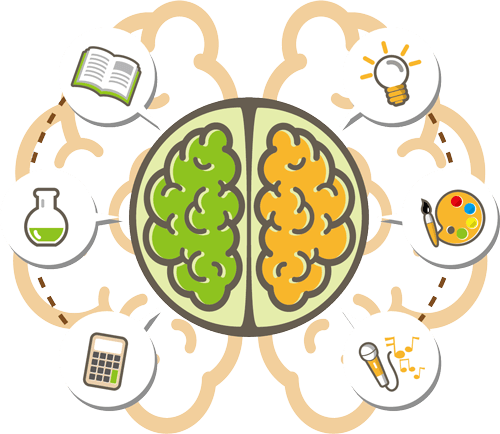 When homework and studying for tests becomes overwhelming, the brain can start giving you signals of being too ‘stuffed’ and overly challenged. There are various ways to trick your brain into memorizing data, while also making it fun. Read these useful tips on how to remember the information that you need without that “let me squeeze as much as I can” feeling.
When homework and studying for tests becomes overwhelming, the brain can start giving you signals of being too ‘stuffed’ and overly challenged. There are various ways to trick your brain into memorizing data, while also making it fun. Read these useful tips on how to remember the information that you need without that “let me squeeze as much as I can” feeling.
1. Repetition
Studies show that we only retain about 10-25% of the material we read the first time. Repetition does work. It has to be done in a smart way though. Instead of reading something for the first time then repeating it 5-6 times within the next 20 minutes, try reading it 2-3 times, focus on something else, or even relax, then review the same information after several hours or the next day. Leave some space in between the repetition sessions to allow the data to sediment.
2. Acronym
The technique of creating acronyms can be quite fun. How many times did you learn something and remembered 90% of it, but there was just one word that would slip all the time? Making acronyms can work as giving yourself a clue. For example, let’s take this sentence: “Dolphins are mammals and use echolocation.” A version for an acronym would be DAMA-U-ECHO, which kind of sounds like a secret code: plus, keeping part of the word “echolocation” can work as hint to help you remember the entire word.
3. Visualization
Visualization creates images and sequences around certain objects. For example, if you learn about the structure of the atom, and the teacher is explaining how its nucleus is so small it resembles a speck of dust in a huge cathedral, imagine just that! Picture a suspended tiny sphere in a vast church. With that image in your mind, you will always know how a nucleus relates to the atom.
4. Dramatize
Actors often read their lines aloud, acting them out in an exaggerated way in order to learn the parts. Dramatizing the information can create associations to help you remember. Take a biology lesson, for example, explaining how a cheetah hunts, the highest speed it reaches, its behavior. You can take that, sit in front of a mirror and act passionately: “The incredible cheetah is now approaching its prey, at an incredible speed of ….! Watch her go! She just caught herself a tasty dinner!” Don’t be afraid to look goofy; a bit of embarrassment also increases the chances to remember.
5. Sleep on It
Last, but definitely not least, studies have shown that sleeping for 15 minutes or more, after learning a complex topic, allows the brain to review and relearn the topic. Sleeping and detaching from the load of information you just fed your neurons helps to solidify that information, and gives the brain the opportunity to process what it just received. Do not underestimate sleep!

